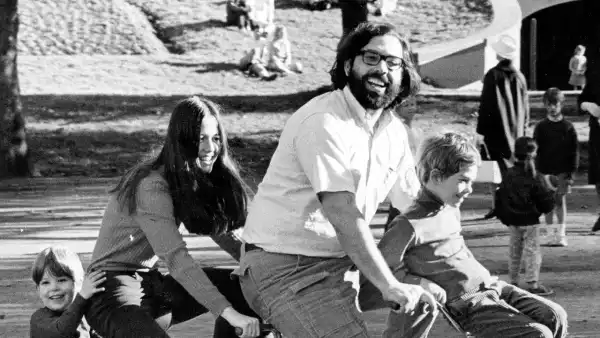
Tom Wolfe, who died Monday, was—as even those of us who did not share his politics and often deplored his taste and even doubted the fashion wisdom of all the white suits have to admit—one of the central makers of modern American prose. His style, when it emerged, in the mid-nineteen-sixties, was genuinely, breathtakingly arresting, and remains startlingly original. Its superficial affect—all those “Zowies!” and ellipses and broken sentences—was like the sound of AM radio shows in the same period, a collage of attention-seeking screams.
But beneath the affectations—no, within them, for, as with any good writer, the mannerisms were the bearers of the morality—was an observer of almost eerie particularity and accuracy. In his best books—“The Electric Kool-Aid Acid Test” and “The Right Stuff” stand out from among many good ones—Wolfe did something more than get down his time right, as journalists ought to. He found a tone to match the time. Given an American reality of wild-eyed weirdness and psychedelic overcharge—of strip-tease artists bent over by synthetic breasts and cars customized to a point of Bavarian, rococo extravagance—any tone that was not, in itself, overcharged and even a little rococo seemed, he knew, inert. It was this belief that led Wolfe to his once famous attack, “Tiny Mummies,” on the supposedly stultifying manner of this magazine as it existed then, and, though one can see a certain justice in the critique, one also recalls the nice irony that, if any one writer anticipated and, so to speak, prepped Wolfe’s style, it was certainly The New Yorker’s A. J. Liebling, as Wolfe himself sporadically recognized.
He had, in the best sense, an ad man’s gift for the pregnant phrase. “The Electric Kool-Aid Acid Test”—like Allen Ginsberg’s “Hydrogen Jukebox”—was the kind of unforgettable slogan that every Mad Man dreamed of creating. “The right stuff” itself, though it has entered the language as something astronauts said to each other, was as much an invention of Wolfe’s as it was of the people he was studying, a phrase he imprinted upon their bravery. His prose flints and flashes with those creations. To say that Wolfe’s writing was the poetic refinement of the art of sixties advertising is to say only a good thing about it—Wolfe took the taste for the potent phrase, the loaded short sentence, the startling intervention, even the wild punctuation, of sixties advertising copy, and turned it into a kind of art.
But even within Wolfe’s wildest enterprises, a quiet inner beat of reflective intelligence could always be felt. He understood, for instance, that Ken Kesey and his Merry Pranksters, far from being bearers of a sixties psychedelia, were in fact straddling a kind of fault line between two times, representatives of fifties hipster culture confronting the newly emerging one of the hippies. The moment in the book when the Kesey gang see the Beatles, bearers of the new tide, from far away in the cheap seats of an arena, has more pathos than triumph in it.
Wolfe’s conservative politics, as they proceeded over the years, had a certain logic, even if it was an easy one to resist, and they filled his books on art and architecture as much as any of the straight political writing—as with the notorious “Radical Chic” attack on the well-meaning Leonard Bernstein and his wife, who were hosting a party for Black Panthers. His politics were, as every dandy’s are, essentially a politics of style. His view was that a core of authentic vernacular American style existed, of which élite or overeducated Americans were perpetually ashamed. This right, or anyway true, stuff, included everything from the signs on the Las Vegas strip to Phil Spector’s wall of sound to the Hotel Fontainebleau in Miami to the madness of a barbecue held for the astronauts in the Houston Coliseum.
Embarrassed by the unapologetic energy of these things, New York intellectuals had, Wolfe thought, put in their place the sparse, impoverished, stripped-down dogmas of Modernist abstraction, and equally, pointlessly, the austere barracks-building of Bauhaus architecture and design. That these were debatable assertions—his critique of the art world, “The Painted Word,” showed a much greater feeling for words than the actual and often gloriously sensual paintings that the words were supposed to have produced—did not alter their potency. If, at times, his cultural politics had a distasteful taint of xenophobia, with the implication that European émigré invaders had spoiled American demotic energies, they had their own kind of undeniable truths. Certainly, anyone surveying the Trump era has to confess that, in the battle between the piety of élite taste and the appeal of American overcharge, you should always bet on the overcharge. That this may be lamentable does not make it less true.
Though, at times, Wolfe thought it paid to play the primitive, he was a man of deep, if specific, erudition. He credited himself as a disciple of the great Thorstein Veblen, the late nineteenth-century student of status and prestige as it was played out in American lives, and this was so. If his novels are varyingly good—“The Bonfire of the Vanities” is surely the best of them—it is because his natural gifts as a Veblenian cartoonist were not often suited to a full-scale, three-dimensional narrative. He was at his best in bursts. He liked, or wished for, comparisons to Dickens, but a better one is to Disraeli as a novelist, who shared his dandyish tastes, his conservative politics, and his love for the broadly colored canvas and the bright caricatural gesture. And if Wolfe did, as a novelist, at times sink into caricature, it was caricature in the American model, boldly tinted and suavely memorable. Possessed of perhaps the best pure eye and ear for American manners since Sinclair Lewis, he can be described in one way with certainty: no account of American letters in the last half of the twentieth century can be credibly written in which Tom Wolfe will be ignored.
Sourse: newyorker.com






